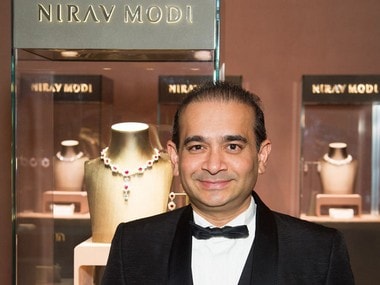If there is one board where Prime Minister Narendra Modi is scoring decisively, it is on the crackdown on corporate-bank-political nexus. There is a larger trend one can’t miss here. Beginning from Vijay Mallya to Nirav Modi and Karti Chidambaram, the Central Bureau of Investigation (CBI), once described by the country’s apex court as a 'caged parrot', along with other agencies, has got the wings to chase what these agencies want, finally. At least it appears so from the ongoing crackdown. Modi’s rivals may call it political vendetta but that can’t apply to the case of diamond merchant, Nirav Modi, who was part of the Prime Minister’s delegation to Davos and is connected to highly influential power centres.
Post the Rs 11,400 crore PNB-scam, a spate of fraud cases, both big and small, have popped up with the CBI and ED (Enforcement Directorate) chasing the perpetrators in a decisive manner. The arrest of Karti Chidambaram can’t just be ruled out as an instance of political vengeance. It has a long history and lots of money has indeed changed hands in a mysterious manner. Both Sr Chidambaram and Karti are doing the obvious by calling it a political vendetta but if indeed that is the case, they should present evidence and prove their innocence in a court of law. Else, the game isn’t likely to end on a positive note for the powerful father-son duo from Sivaganga.
To be sure, in many high-profile cases, the war on powerful industrialists cornered in corruption-fraud cases is still half way. There isn’t a certain victory yet although there have been considerable damage done to the accused be it Vijay Mallya or Nirav Modi. For instance, although there are hard evidence against Nirav Modi in the PNB-scam, his arrest and recovery of money will depend on whether India manages to bring him back to home soil. This isn’t easy once they cross the border. So is the Vijay Mallya case, where the CBI, government and banks have been fighting a tough legal battle ever since he left India. Till the time Mallya’s extradition isn’t possible, there is no hope of any meaningful victory in the battle. But, what is clear here is the intent of the government to crack down on perpetrators.
The sleuths seem to have renewed confidence that no phone calls will come from Delhi’s power corridors preventing an ongoing case. This is a good signal for the country as the crackdown on corporate-political nexus is long overdue. This has been the root cause of a major chunk of bank NPAs (non-performing assets) and certain corporations getting undue favours. By attacking its foundations, the Modi government deserves credit for sending out all the right signals to cronies operating under the corporate-political nexus.
A look at a series of high profile cases such as the recent CBI action on Rashtriya Janata Dal (RJD) chief and former railway minister Lalu Prasad Yadav shows no one is insulated. The same holds true in the case of the Chidambarams. This is probably the first time in recent years that these many high profile corruption/financial irregularity cases have been simultaneously pursued in India. Now, that’s a good sign for both, the nation and the economy, and a significant step to shake off the image of being a nation prone to corruption at high-level. The influence of corporate-political nexus is clear in most of these cases.
Take the Lalu case, which pertains to awarding of contracts to a private company — Sujata Hotels, for the maintenance and operation of BNR hotels at Ranchi and Puri, when Lalu was the Railways minister. These are the Railways' heritage hotels which Indian Railway Catering and Tourism Corporation Ltd (IRCTC) took over from the public transporter earlier in the same year. The CBI later booked former managing director, IRCTC P K Goel, Sujata - wife of Yadav's confidante Prem Chand Gupta, and two directors of a private company. If the charges are true, Lalu misused his position in the government to build his family fortunes.
Similarly, in the case of the Chidambarams’, the corporate-political nexus has apparently worked in full swing. The case was based on the clearances given to INX Media. Karti allegedly facilitated the clearances for kickbacks in 2008 when Chidambaram was a Union minister in the UPA government. Also, there are questions on how Mallya managed to get large chunks of bank loans when his failed airline, Kigfisher, was constantly diving from financial losses to bigger miseries.
As this writer pointed out in an earlier column, corruption is the cancer that negates the gains a country achieves in terms of governance and goodwill. By giving the investigators a free-hand to chase the corrupt, the Modi government is sending out a strong signal to political-corporate nexus, which has played a significant role in damaging the economy. The work of this nexus can be felt in most of the ills the economy is facing now — high bank bad loans, the consequential reluctance of banks to take fresh investment commitments and in the cases of missing government funds intended for public projects.
From Vijay Mallya to Karti Chidambaram, a clear message has gone out from the government to the infamous corporate-political nexus or mafia by letting the ‘caged parrot’ free. This is good news for an aspiring economy.
Published Date: Mar 01, 2018 10:32 AM | Updated Date: Mar 01, 2018 12:11 PM



